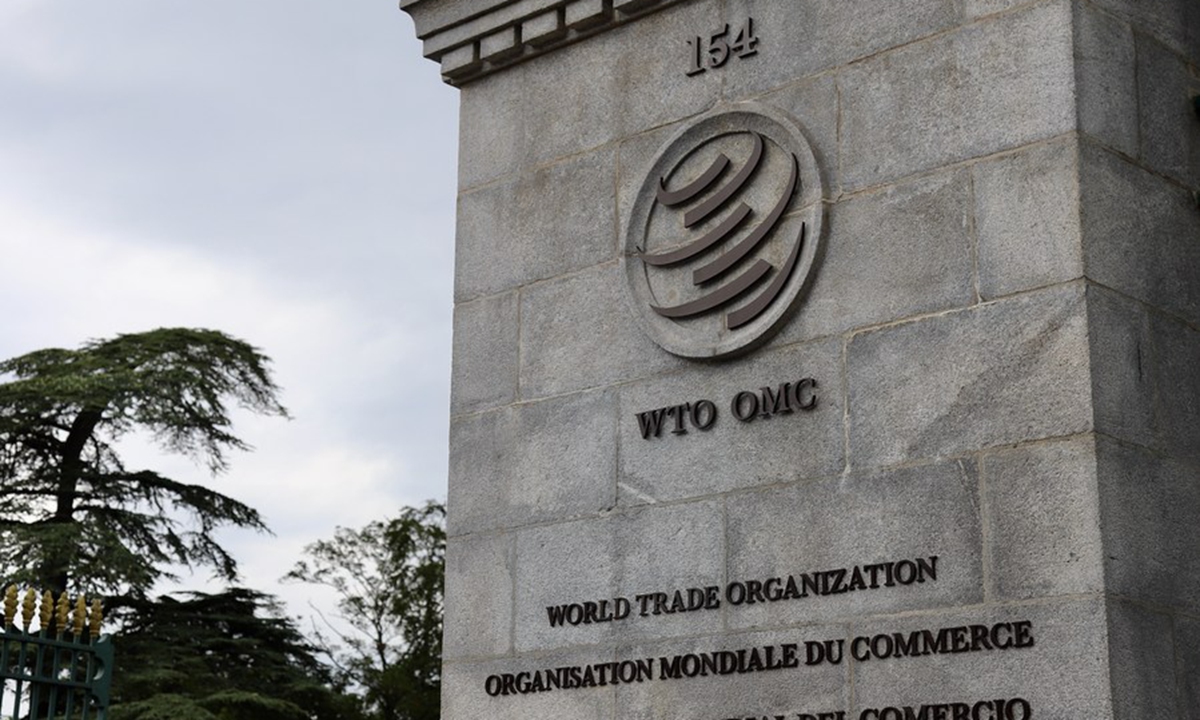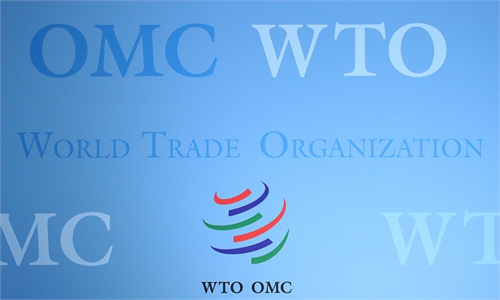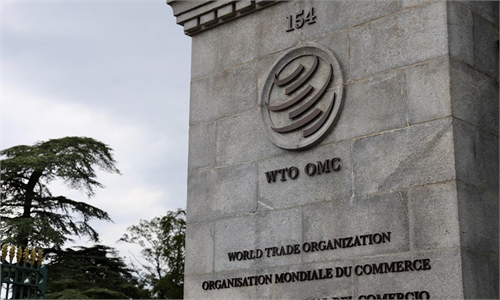
Photo taken on July 15, 2020 shows an exterior view of the World Trade Organization (WTO) headquarters in Geneva, Switzerland. (Photo by Li Ye/Xinhua)
Talk of the US potentially leaving the World Trade Organization (WTO) intensified on Wednesday, after the multilateral trading body ruled that Washington's tariffs on Chinese goods violated international rules, and US officials harshly criticized the ruling and renewed threats of leaving the body Washington helped create over two decades ago.
A potential US withdrawal from the WTO could upend the global trade order that has been largely dominated by the US. But the global community has been preparing for such a scenario for years, as Washington has increasingly become a destructive rather than constructive force not just at the WTO but also in the rules-based global trade system in recent years, Chinese experts noted.
Leaving the multilateral body will further isolate the US from economic globalization, which, despite its imperfections, will remain the overarching theme for decades to come, and put US industries and businesses at a disadvantage, experts warned.
A panel of three experts at the WTO ruled that punitive tariffs from the US on $234 billion worth of Chinese goods, imposed in 2018 based on its Section 301 trade law, violated global trade rules. The ruling was a result of a Chinese complaint in 2018.
Though the decision does not carry any practical ramifications for the US, or have an impact on the China-US tariff war, it was hailed by Beijing as "objective and just," while sparking criticism from Washington.
US President Donald Trump on Tuesday threatened that he would "do something about the WTO because they've let China get away with murder." In a statement, US Trade Representative Robert Lighthizer said that the WTO was "completely inadequate."
While Trump, who has withdrawn the US from several multilateral bodies, including the World Health Organization, and Lighthizer did not directly mention leaving the WTO, Senator Josh Hawley suggested that the US "should withdraw and lead the effort to abolish it."
Even before the ruling on Tuesday, the US had frequently threatened to leave the WTO, claiming that the body was unfair to its industries and businesses. Though the US is still in the middle of a heated presidential election and a potential formal withdrawal could take some time, the renewed threats increased the possibility of the US actually leaving, experts noted.
However, "[the US leaving] might not be a bad thing, because it has constantly undermined the WTO and made it impossible for anything to get done," He Weiwen, an executive council member of the China Society for World Trade Organization Studies, told the Global Times on Wednesday. "The WTO has 164 members, and the US is just one."
The US has spent years chipping away at the WTO with constant attacks, and has disregarded its authority. Last year, the Trump administration moved to cripple the body's most crucial function to settle disputes among members by blocking appointments to the appellate body, which still remains paralyzed -the main reason that the ruling on Tuesday is unlikely to result in any ramifications for the US.
However, the ruling could be seen as a "stress test" for the WTO minus the US scenario, and it was a successful one, said Mei Xinyu, a research fellow at the Ministry of Commerce's Chinese Academy of International Trade and Economic Cooperation.
"It's like the WTO has just completed a stress test where it operates without the US. This is probably the biggest warning to the US: without you, economic globalization will continue," Mei told the Global Times on Tuesday.
Fed up with US disruptions, major players in the WTO have already moved to sidestep the US to preserve the WTO, as well as the rules-based multilateral trading system it embodies.
In January, 17 members of the WTO, including China, the EU, Canada and Australia, said they would work toward contingency measures to allow the WTO Appellate Body to continue functioning. Cooperation in reforming the WTO has also been among the top issues at recent China-EU talks.
"Without the US, the WTO could operate even better," He said. "The US has left the WHO, and the WHO hasn't changed; the US left the Paris Agreement, and the agreement's role hasn't changed; the US left the UN Human Rights Council and the UN Educational, Scientific and Cultural Organization, and they were just one country less. We shouldn't view the US anything more than just a country."



